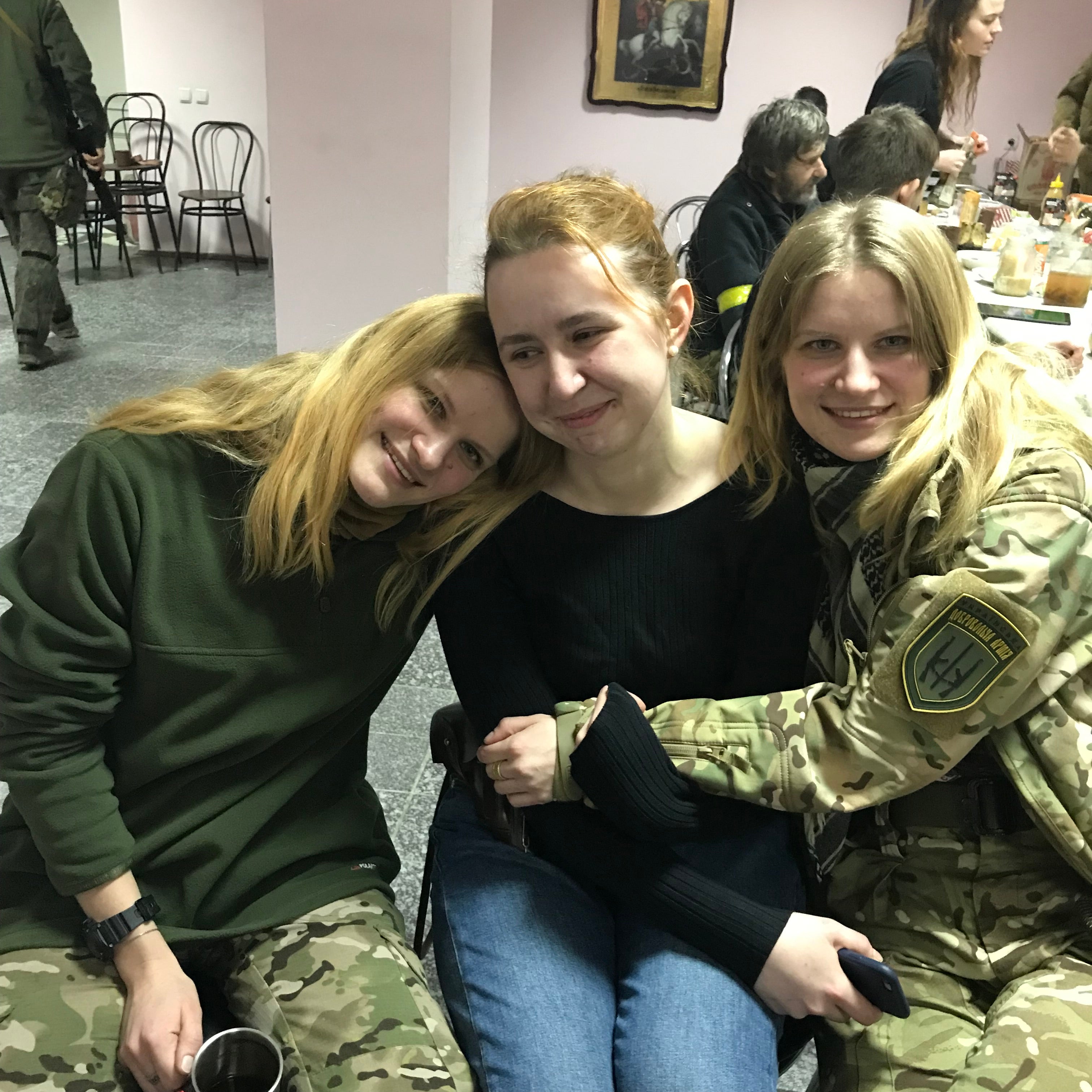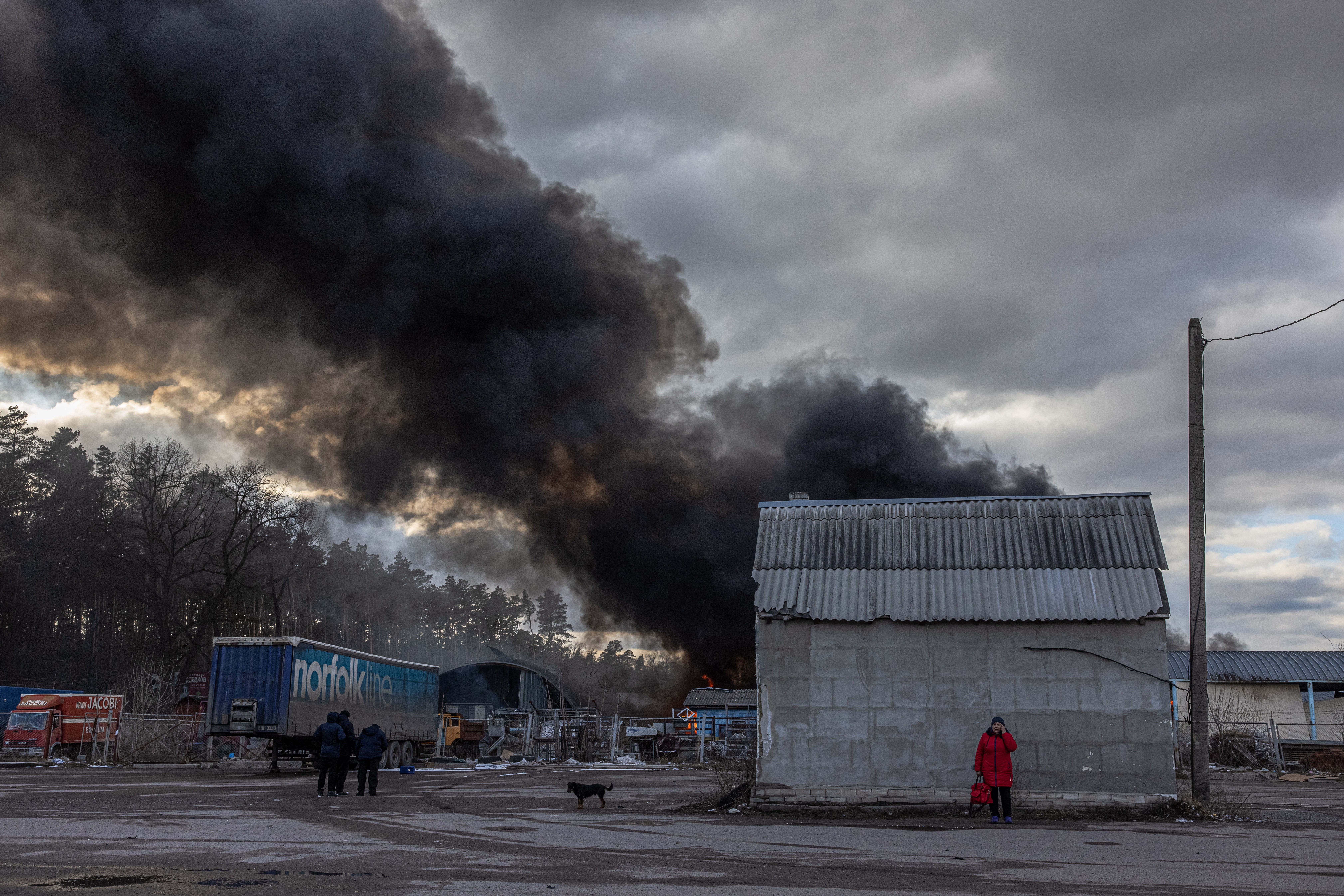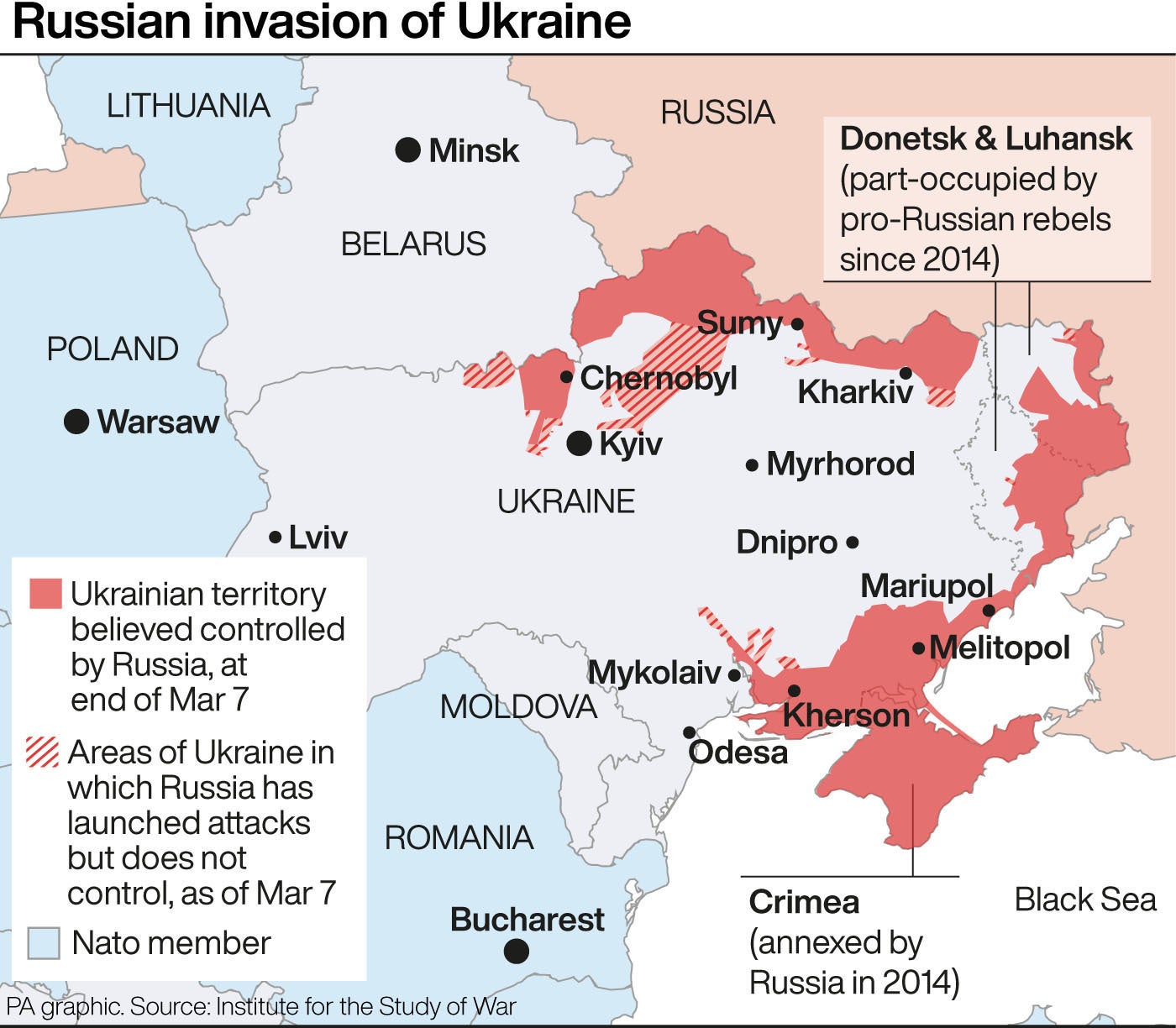Sister act: The twins who have volunteered to work in a Kyiv medical battalion
The Hospitallers Battalion deals with emergencies around the clock in Kyiv, reports Kim Sengupta


Sofia and Solomia Artemchuk believe that they have followed a similar path in life because they are twins. It was, thus, perhaps inevitable that they would end up in the same unit in the military carrying out the same risky task in this conflict.
The sisters, 30 years old, are members of a voluntary medical battalion, the Hospitallers, who deal with emergency treatment and evacuation of the injured, around the clock, often under heavy fire.
The nature of the job means that there are, inevitably, casualties among the members of the unit, who can find themselves caught up in air strikes and artillery fire as well as, they claim, being deliberately targeted by Russian forces.
The WHO (World Health Organisation) said this week that attacks on healthcare facilities had been steadily rising, with nine people dying in at least 16 separate attacks since the Russian invasion began. It pointed out that some of the incidents had occurred when ambulances were commandeered for non-healthcare activities, without specifying which side was responsible.
The Hospitallers deny that they have ever used subterfuge to gain access to places where there have been casualties. They are, however, armed during their missions, have engaged in firefights with the enemy, and are based alongside Ukrainian frontline detachments.

The battalion, named after the Knights Hospitaller, a religious order based in Jerusalem at the time of the Crusades, was started in Ukraine in 2015 to care for the wounded during the separatist wars that led to the establishment of the “people’s republics” of Donetsk and Luhansk.
The founder of the Hospitallers, Yana Zinkevich, had planned to study medicine at university, but stayed on with the battalion as its commander. She has been awarded the Order of Merit by the Ukrainian government, as well as receiving several civic awards.
Having a female chief has been a motivation for some of those who have joined.
“It’s good that we have a woman in an important position at a time like this,” says a 27-year-old volunteer. “And it is good to talk about this today, International Women’s Day. For us it is important to mark this day, not just as something symbolic, but something very real.”
Natalya, who does not want her surname published partly because members of her family are in Mariupol, a city currently being encircled by Russian troops, worked as a graphic designer before joining the Hospitallers.
“The company I worked for has had to shut down. Most of the staff have left Kyiv for western Ukraine, so I don’t know when it can reopen. We don’t even know what’s going to happen to Kyiv,” she says. “A lot of my friends, my family, have gone as well. But I’ve decided to stay. It’s our city and we need to look after our people here.”
The mother of Sofia and Solomia Artemchuk was among the first to volunteer to serve, as a military volunteer, in the conflict seven years ago. She is now in Lviv, concerned about her daughters but not discouraging them from continuing with their duties.
“We did not even know that our mother had volunteered when she did: she did not want to worry us,” says Solomia at one of the battalion’s bases in Kyiv. “So maybe serving the country is part of our DNA. This is a struggle for all Ukrainians, women as well as men. It is natural that we would want to take part in this.”

Her sister Sofia adds: “We knew what’s involved, what the dangers are, when we joined, so we cannot complain about that. We have received training on weapons, but haven’t had to use them so far. Our job is to save lives, that is our priority, but we have to defend ourselves as well if necessary.”
Katarina Halushka, a colleague and friend who works at the Ukrainian Ministry of Defence, is visiting the two sisters. The three women saw each other almost every day before the war. This is a rare opportunity to catch up.
They talk about mutual friends, their boyfriends past and present, what has happened to the places where they used to hang out, and where they would all like to meet up when the conflict is over.
“But now that the chitchat is over, let’s talk about the war”, says 25-year-old Halushka, who carries a pistol, a Makarov, in a holster around her waist.
“A lot of people abroad thought that Vladimir Putin was going to crush us easily, that he’ll take Kyiv in a few days. That hasn’t happened; we are fighting back well, as you can see. We are very grateful for international support, but it’s us, all Ukrainians, who will see it through to the end.”



Join our commenting forum
Join thought-provoking conversations, follow other Independent readers and see their replies
Comments